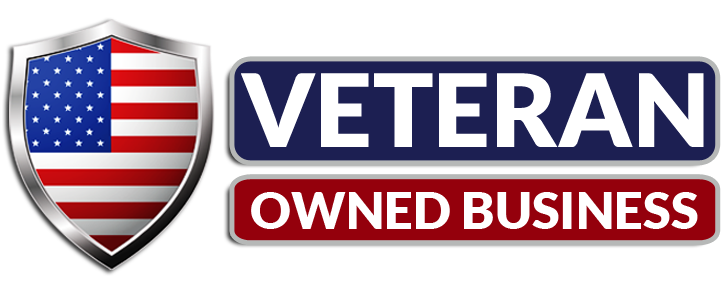You’re injured. The hospital wants payment. The insurance company’s dragging its feet. Here’s how medical bills are handled after a Colorado accident—and how to protect yourself.
“I Just Got Hit—Now the Bills Won’t Stop Coming”
You didn’t ask for this. One second you’re driving through an intersection or merging onto I-25, and the next—you’re in pain, your car’s totaled, and the ambulance is on the way.
Then the bills start coming.
- $2,000 for the emergency room.
- $1,200 for X-rays.
- $400 for pain medication.
- $8,000 for physical therapy.
- $15,000+ for follow-up procedures.
And all you can think is: “Why am I paying for someone else’s mistake?”
At Fisher Injury Law, we help Colorado accident victims get through their cases without drowning in debt or confusion. Let’s walk you through who’s actually responsible—and how to protect yourself.
Colorado Is a Fault State—But That Doesn’t Mean the Other Driver Pays Right Away
Colorado uses a fault-based system for car accident claims. That means the driver who caused the accident (and their insurance) is financially responsible for the damage—including your medical bills.
But here’s the catch: They don’t pay immediately.
Liability insurance only kicks in after a claim is resolved—which can take months or even years if the insurer pushes back. Meanwhile, your providers still expect to be paid.
So who pays up front? That’s where it gets tricky.
Who Pays Medical Bills First? (Hint: It’s Usually Not the Other Driver)
Until your case settles, you’re responsible for ensuring your bills are covered. Here are the most common ways crash victims handle medical costs in Colorado:
1. Health Insurance
If you have private health coverage, Medicaid, or Medicare, these plans may cover your treatments.
But they usually come with co-pays, deductibles, and limited provider access. Worse—your health insurer may demand reimbursement (called subrogation) once you get a settlement.
2. Medical Payments Coverage (Med Pay)
Med Pay is an optional add-on to your auto insurance policy in Colorado.
If you have it, it covers medical bills regardless of fault, often up to $5,000 or more.
Tip: Colorado law requires insurers to offer Med Pay, so check your policy—you may already have it even if you don’t know it.
3. Out-of-Pocket or Payment Plans
If you don’t have insurance or Med Pay, you may be forced to pay out of pocket.
This can devastate your finances or affect your credit if unpaid bills go to collections.
4. Treatment on Lien
Some doctors and specialists, especially those working at accident clinics, are willing to delay billing until your case settles.
This means you can get the care you need now—without worrying about upfront payments.
Why the At-Fault Driver’s Insurance Won’t Pay Right Away
Many victims assume the other driver’s insurance will cover everything from day one.
Unfortunately, that’s not how the system works.
Here’s why:
- Their insurer will investigate the claim
- They may deny fault or dispute your injuries
- They’ll try to minimize their payout
- They don’t pay until you agree to a final settlement
And once you settle? You can’t go back and ask for more—no matter what medical costs arise later.
That’s why it’s critical to work with a lawyer who understands how to value your future care and factor every bill into your settlement demand.
Common Pitfalls That Can Cost You Thousands
🚩 Waiting to Get Treatment
Delaying care gives the insurer ammunition to say, “You must not have been seriously hurt.”
🚩 Using Health Insurance Without Understanding Liens
Many health plans have lien rights—meaning they’ll take a portion of your settlement later unless those liens are negotiated down.
🚩 Accepting a Quick Settlement
Fast offers from insurance companies often don’t account for future care, lost wages, or long-term impact. Once you sign, you waive all future claims—even if new injuries surface.
How Fisher Injury Law Protects You—and Your Medical Recovery
We’ve helped hundreds of injury victims in Colorado navigate this process. We don’t just build your case—we protect your access to care and your financial future.
Here’s how we help:
- Medical liens: We help ensure all of your medical bills are satisfied when you settle
- Full documentation of injuries: We make sure all of your medical treatment and bills are included in your settlement to ensure every dollar of medical cost is covered
- Lien negotiations: We work to reduce what you owe to health insurers or providers
- Aggressive settlement demands: We tell your story in the demand and account for every dollar of economic and non-economic damages
Our founder, Paul Fisher, is a military veteran who brings discipline and dedication to every case we handle. If you’re under pressure, let us handle the legal battle for you, so you can focus on healing.
Your 3-Step Plan to Handle Medical Bills After a Crash
- Call Fisher Injury Law Right Away
We’ll review your coverage, bills, and help you avoid common traps. - We Organize and Negotiate Your Medical Costs
From provider bills to insurance claims, we take over the communication and the paperwork. - You Focus on Healing—We Focus on Getting Everything Paid
We fight to get every medical bill covered—now and in the future, so you can focus on healing.
Hit With Medical Bills After a Crash? You Don’t Have to Handle It Alone.
Call Fisher Injury Law today for a free consultation.
We help Colorado crash victims get the care they need—without the financial panic.

Erica Long represents plaintiffs in all forms of accident cases including car and motorcycle accidents, wrongful death, and slip and fall injuries. She is licensed to practice law in both the State of Colorado and the State of California. Ms. Long earned her bachelor’s degree from the University of California, Berkeley and her Juris Doctor degree from the University of California, Berkeley School of Law.

